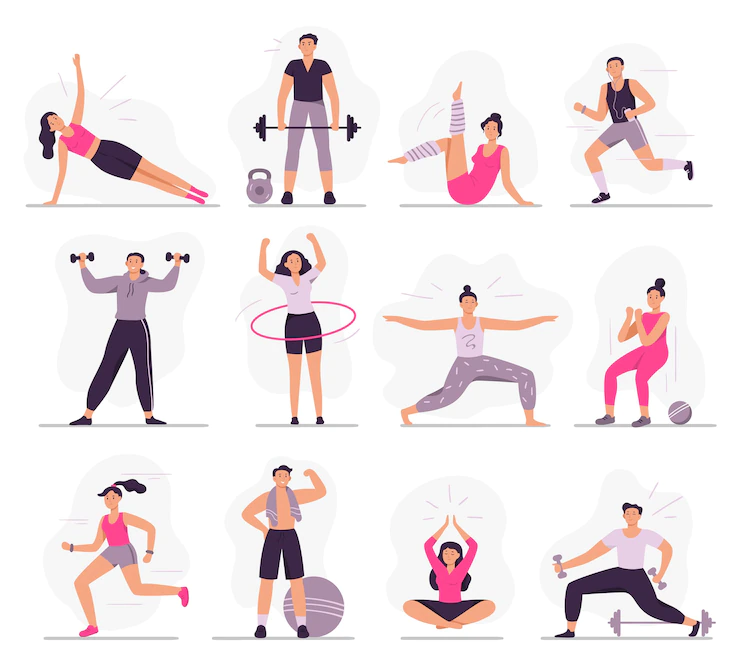Exploring the Science of Sweating: Understanding the Human Body's Reaction to Working Out

Sweat is often perceived as the definitive sign of exertion, a tangible reminder of our body's response to exercise. But what precisely happens beneath the surface when we exert ourselves physically? Understanding the science of sweat helps not only demystify our body's complex thermoregulation process but additionally offers insights into how we can enhance our workouts and overall well-being. From the techniques we employ to mitigate loss during sweat sessions to the role of nutrition in fueling our exercise journey, every aspect plays a vital part in our advancement.
In this article, we will explore how our bodies react to exercise, the importance of hydration, the impact of sleep on performance, and the essential role of nutrition to support our workout goals. Whether you're aiming to establish a solid workout routine that sticks or trying to discover ways to stay fit without a gym subscription, knowing how your body works can elevate your perspective to fitness. Get ready to plunge into the intriguing world of sweat and its relationship to a healthier, fitter you.
Daily Routines for Best Health
Creating daily habits that support health and fitness is vital for long-term wellness. Begin your day with drinking water, aiming to consume a glass of water as soon as possible in the AM. This straightforward act kickstarts your metabolism and supports better digestion throughout the day. Following Click here for more info , incorporating a healthy breakfast loaded with protein and whole grains will establish a good tone, providing you with lasting energy for your day ahead.
Adding regular physical activity into your daily routine is important, even if you prefer to remain active without a gym membership. Aim for at least 30 minutes of movement, whether it's fast walking, cycling, or simple body-weight workouts at home. Remember, regularity beats intensity; making exercise into a daily habit, rather than periodic effort, leads to better results and adherence to a fitness plan.
Finally, don't underestimate the importance of rest. Schedule at least one day of rest each week to allow your muscles to rest and adapt. On your rest days, focus on gentle activities like stretching or yoga to improve flexibility and prevent injury. Balancing workouts with sufficient recovery promotes ongoing progress in your fitness journey, enhancing your total health and well-being.
Creating a Long-lasting Fitness Regimen
Formulating a fitness routine that lasts requires commitment and resilience. Commence by defining achievable and specific goals that match with your lifestyle. Consider elements like your existing fitness condition, accessible time, and personal interests. This tailored approach makes it simpler to stay inspired. Developing a schedule that complements your daily life, rather than coercing your life to fit into a workout regimen, will lead to sustained adherence and success.
Differentiation is another crucial aspect in maintaining a sustainable routine. Incorporating different types of physical activity, such as strength training, cardio, and flexibility work, can ensure a exciting and stimulating experience. Additionally, taking delight in your workouts enhances consistency. Explore various activities like dance classes, hiking, or yoga to find out what you love and what aligns with your fitness goals. This diversity helps prevent tedium and burnout, making it more feasible that you'll persevere in it.

In conclusion, it is crucial to be aware of your body and be adaptable with your plan. Sometimes life interrupts, and skipping a workout is not the ultimate failure. Instead of seeing missed sessions as setbacks, treat them as moments to reassess and modify. Including rest days and granting yourself grace can help prevent injuries and mental fatigue, ensuring that your routine is not only sustainable but also enjoyable over the long term.
Nourishment and Fluid Intake for Athletic Success
Adequate diet and hydration are essential components of an efficient exercise program. Consuming a nutrient-dense menu loaded with whole foods including fruits, vegetables, protein sources, and good fats helps fuel your workouts and boosts recovery. Adding top superfoods can provide the necessary vitamins and minerals to enhance your energy and overall health. Meal prepping can also streamline your dietary habits, ensuring you have healthy options readily on hand, reducing the temptation to resort to unhealthy choices.
Staying hydrated plays a vital role in athletic performance as well. Lack of hydration can lead to tiredness, decreased motor skills, and lowered endurance. To maintain optimal hydration, it is essential to drink water throughout the day and take into account your personal activity level and climate. Hydration hacks, like carrying a water bottle or setting reminders to drink, can help ensure you achieve your daily fluid intake and sustain peak performance during exercise sessions.
Understanding the connection between food and exercise is key in enhancing your fitness journey. Basic nutrition tips can guide you in choosing the right pre- and post-workout meals, which help to maximize energy and recovery. Properly balancing your intake of carbohydrates, proteins, and fats while staying hydrated will encourage better workout results and enhance your overall fitness experience.
